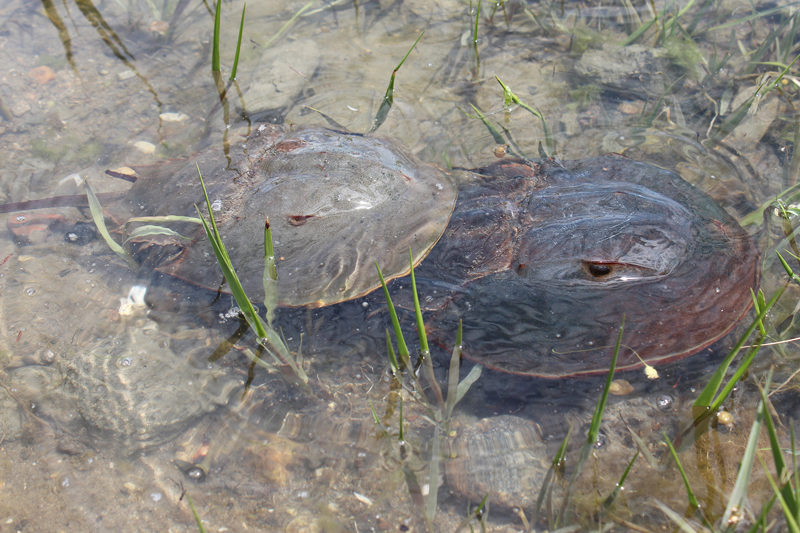
The data collected by volunteers with the horseshoe crab monitoring program contribute to the understanding of these fascinating prehistoric animals as well as help determine the overall health of the estuary. (Photo courtesy Coastal Rivers Conservation Trust)
Coastal Rivers is seeking volunteers for a longstanding community science program that collects data on horseshoe crab populations in the Damariscotta River Estuary.
A training session for the program will be held Thursday, April 18 from 4-6 p.m. at Coastal Rivers Salt Bay Farm at 110 Belvedere Road in Damariscotta. Participants should bring tall rubber boots suitable for wading, and will need to be able to navigate a rocky shoreline and steep banks.
Led by Director of Education and Community Science Sarah Gladu, the training will provide volunteers with a background about horseshoe crab biology and details on the monitoring procedure. The group will visit one of the monitoring sites and practice the protocol. All equipment is provided.
At the training, Gladu will share a schedule so volunteers can register for the times that suit their schedules. Volunteers do not need to be available to monitor every day. The schedule will vary, since the monitoring times need to correspond with the daytime high tide.
This monitoring program is the sole source of data on horseshoe crab populations in the region. From the beginning of May through mid-June, volunteers spend approximately one hour during high tide each day counting horseshoe crabs. The process requires one volunteer in the water at the shoreline to spot and count, while a second volunteer on shore records the information on a clipboard. Volunteers also measure and record the salinity and temperature of the water since these factors have a bearing on horseshoe crab behavior.
The count information is used to determine changes in population over time and develop an understanding of horseshoe crab behavior in this region. The data are critical in determining the health of the overall environment, particularly in Great Salt Bay.
Registration for this volunteer training is required and can be done online at coastalrivers.org/events.
Coastal Rivers is a nonprofit, member-supported, nationally accredited land trust caring for the lands and waters of the Damariscotta-Pemaquid region by conserving special places, protecting water quality, creating trails and public access, and deepening connections to nature through education programs.
For more information, email info@coastalrivers.org or go to coastalrivers.org.






